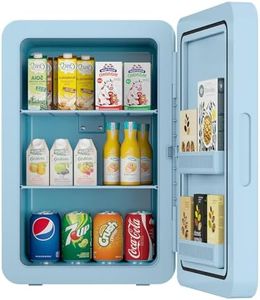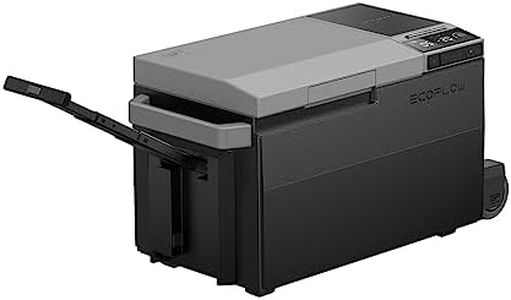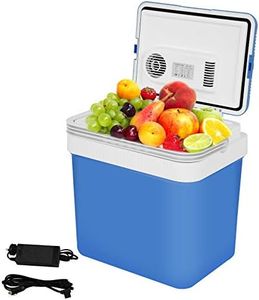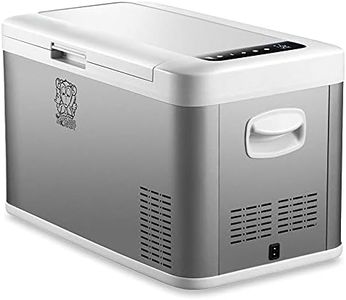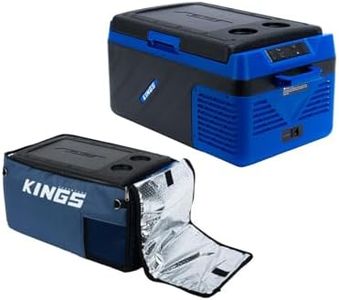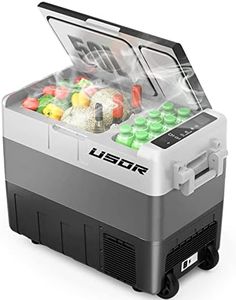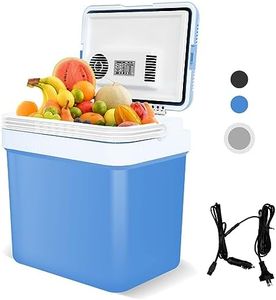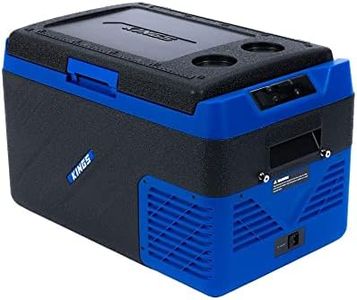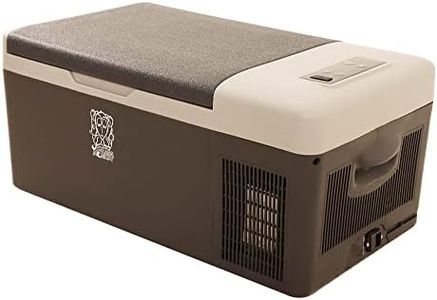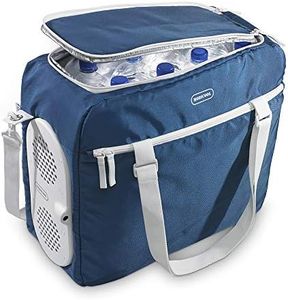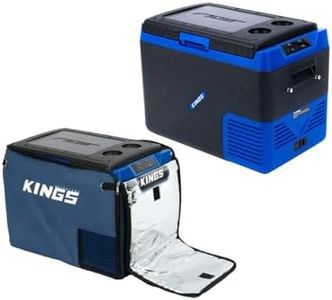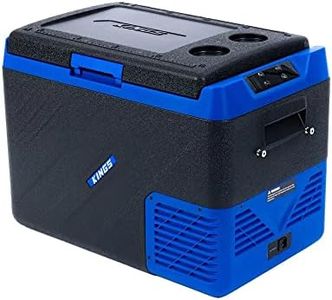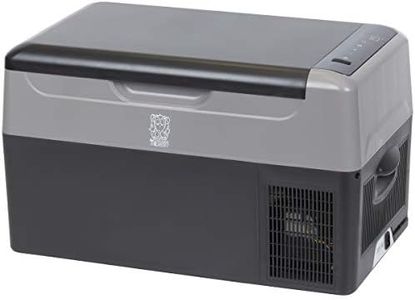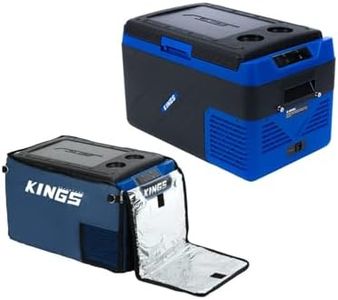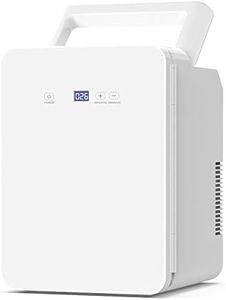We Use CookiesWe use cookies to enhance the security, performance,
functionality and for analytical and promotional activities. By continuing to browse this site you
are agreeing to our privacy policy
10 Best Electric Cooler
From leading brands and best sellers available on the web.By clicking on a link to a third party's website, log data is shared with that third party.
Buying Guide for the Best Electric Cooler
Choosing an electric cooler can be a great way to keep your food and drinks cold when you’re traveling, camping, or simply spending time outdoors. Unlike traditional coolers that use ice, electric coolers plug into your car or a wall outlet and actively keep things chilled using electricity. To make the best choice, you should consider how you’ll be using the cooler, how much space you need, and what power options are convenient for you. Understanding the main features will help you find a model that fits your lifestyle and needs.Type (Thermoelectric vs Compressor)The type of cooling technology is one of the most important factors to consider. Thermoelectric coolers use a fan and a small electric module to move heat out, which is quieter and lighter but only cools to a certain temperature below the ambient air. Compressor coolers use a small refrigerator system, so they can get much colder, even below freezing, and are less affected by outside temperatures. If you’ll be in hotter environments or need to keep things very cold or frozen, a compressor style is generally better. For mild climates or just chilling drinks, thermoelectric is usually enough, and it’s lighter to carry.
CapacityCapacity refers to how much you can fit inside the cooler, often measured in liters or quarts. Small coolers (20 liters or less) are good for one or two people on short trips. Mid-sized ones (about 20 to 40 liters) can fit food and drinks for a family or a longer day out. Large coolers (40 liters and above) are best for bigger groups or longer trips. Think about how many people will be using the cooler, how long you’ll be away from other refrigeration, and how much you need to store to pick the right size for your needs.
Power SourceElectric coolers can be powered in a few different ways: a car’s 12V DC outlet, a standard household 110V or 220V AC outlet, or sometimes with battery packs. Some coolers support multiple types which gives you more flexibility. If you only plan to use the cooler in your car, a 12V plug is enough. If you want to use it in hotel rooms, RVs, or at home too, look for one that has an AC adapter included. Your choice should depend on where you’ll mostly use the cooler and what outlets are available to you.
Temperature Range and ControlThis refers to how cold the cooler can get and how much you can control the temperature. Some coolers only cool to a certain number of degrees below the outside air, while others have precise controls that let you set an exact target temperature, sometimes even allowing freezing. If you need to keep things like ice cream or meat frozen, look for one that can reach sub-zero temperatures. If you just need drinks to be cool, a less powerful cooler is enough. For more flexibility, a model with an adjustable thermostat can be very helpful.
PortabilityPortability is all about how easy the cooler is to carry or move. This includes the weight of the cooler (especially when full), whether it has wheels, carry handles, or a compact design. If you’ll need to carry it over long distances or lift it in and out of a car, look for something lighter with comfortable handles or wheels. Heavier models may be fine if they’re mostly staying in one spot, but for frequent travelers or mobile use, lighter and more portable designs make your life a lot easier.
Energy EfficiencyEnergy efficiency tells you how much power the cooler uses to keep things cold. A more efficient cooler drains less power from your car battery or uses less electricity at home, which can be important on long trips or when using solar panels. Look at the cooler’s power consumption number—lower watt numbers are more efficient. If you’ll be running the cooler for long periods or off a small battery, pick the most efficient one that still meets your cooling needs.
Noise LevelSome coolers are very quiet, while others make noticeable fan or compressor noises. If you plan to use your cooler in a tent, bedroom, or anywhere noise could disturb you, look for quiet models (usually thermoelectric ones are quieter than compressor types). For use outdoors during the day, noise is less of a concern, but for overnight use or in shared spaces, a quieter cooler can make your experience much more pleasant.
